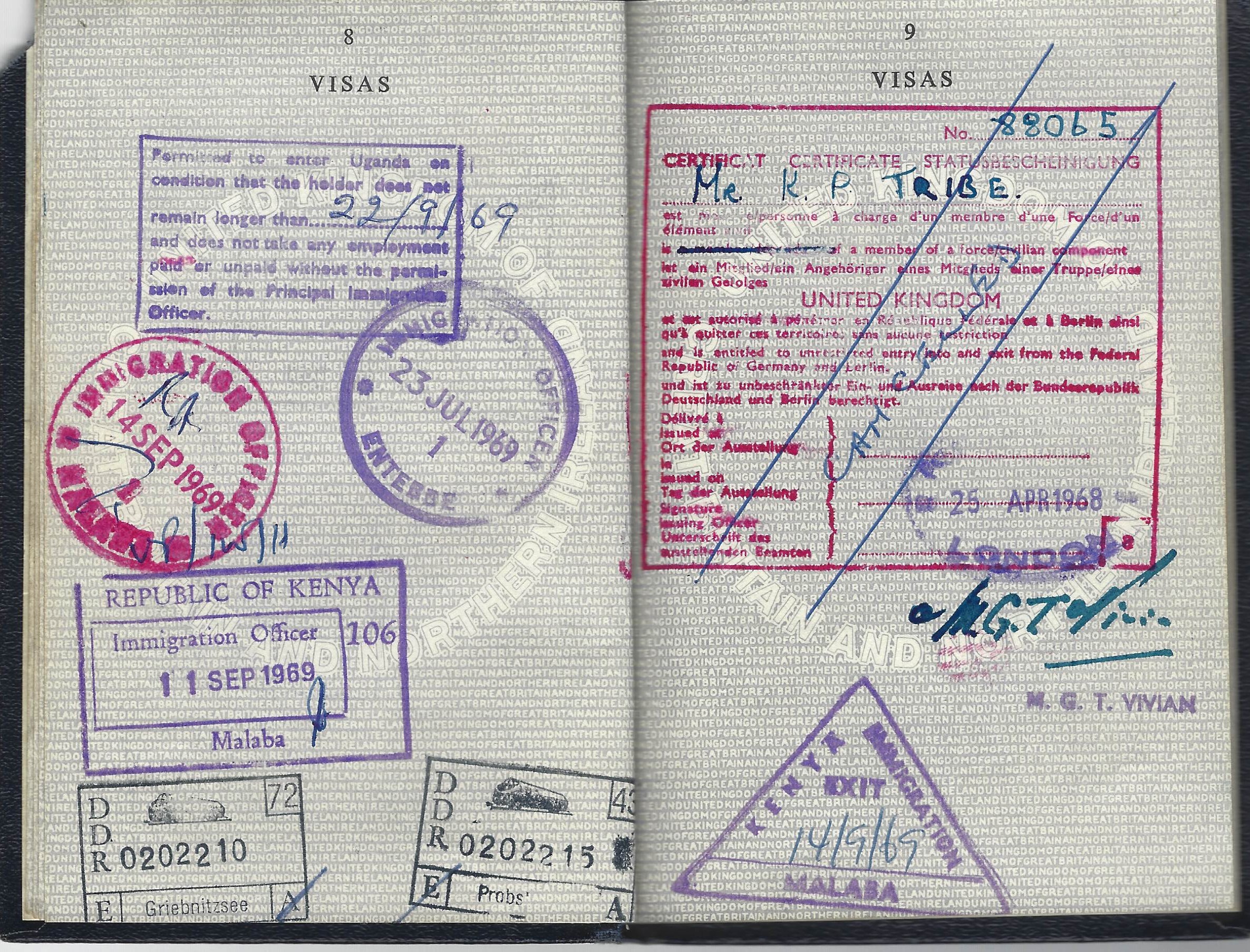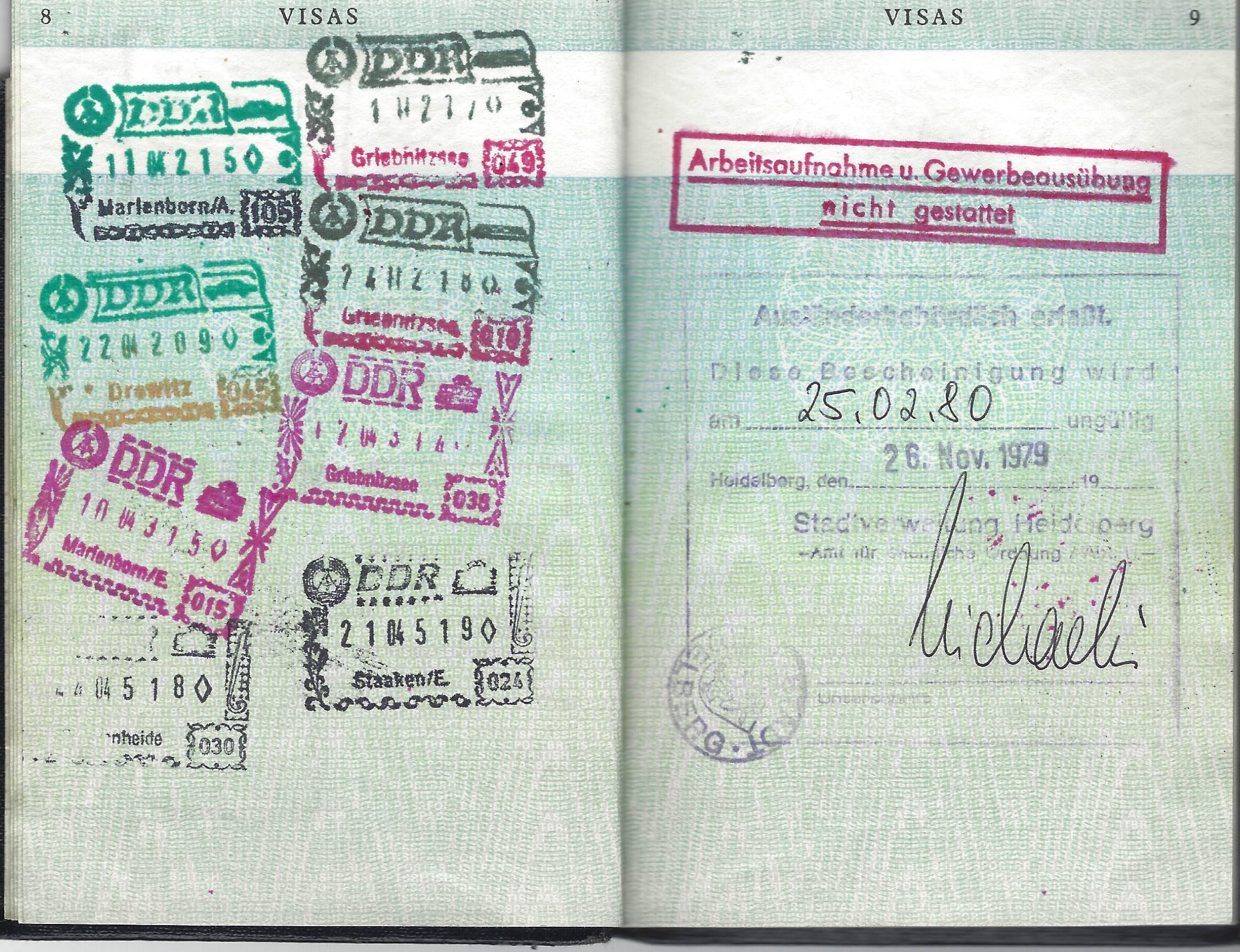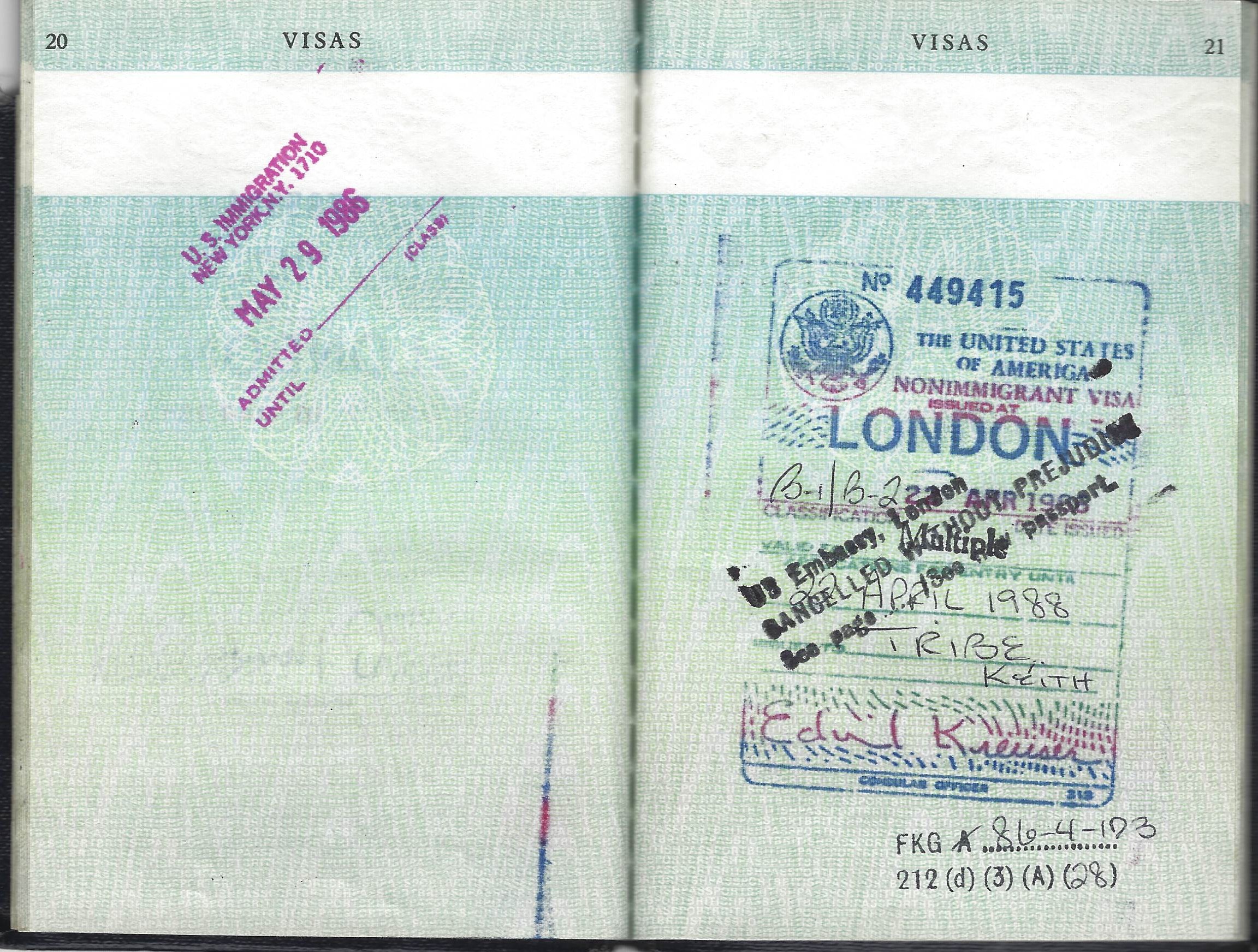Last year as part of the ongoing Brexit saga the British Government announced that Brexit would see the return of the “Iconic blue passport” that we had all missed so much. Never mind that all passports are now in a (smaller) standard format, and that there was nothing to stop the British having a blue version of the maroon EU passport in the first place.
So here are some reminders from my own “iconic” passports:
Note that my visit to the Commonwealth country of Uganda was strictly time-limited, although in fact I did not return to Britain until about the second week of October. How I organised that I do not recall.
Second, visiting Berlin before 1990 by rail or road was a wearisome business:
One way for me to get to my parents in West Berlin was to use the military train from Brunswick, which was effectively free and which ran every day, leaving Brunswick about 1530 and arriving in Berlin about 1930. This did not involve dealing with the GDR border guards, I was in the care of the British Army, who sorted out all the paperwork with their Soviet opposite numbers. On one trip, shortly after we entered the territory of West Berlin a soldier cleared his SLR in the corridor outside my compartment. It was not all show.
Third, as a former member of the CPGB I decided when I first went to the USA that I had better declare this, and so became included with the mafiosi, random criminals and drug dealers in the relevant paragraph of the application. This way I got a limited visa, but I did get a visa and this meant that if they looked at the files on which my name no doubt was they would not discover anything I had not told them. So imagine my dismay when, later, the embassy gave me the wrong visa and then cancelled it:
Having a cancellation “without prejudice” for a US visa in one’s passport was not a good thing.
For a British person moving around Europe today this is of course all in the past. But it is a past that those so keen on the iconic blue passport have entirely forgotten; and it is a past which is on the way back.



